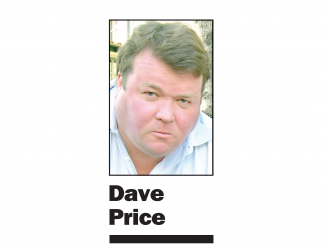
BY ALLISON LEVITSKY
Daily Post Staff Writer
Palo Alto voters have been receiving phone calls from a Las Vegas-based pollster this week asking for their views on rent control, job growth and the City Council race.
Asya Marder, 72, said the call came from a phone number linked to Precision Opinion, a market research company with clients in business and politics.
Jo Ann Mandinach, 69, said she answered the poll twice — once for herself and once for her partner — and that she thought it was a “push poll” designed to stir up support for unlimited growth without rent control.
“Halfway through the first survey I began to get suspicious because some of the questions struck me as fear-mongering and pretty similar in tone to the city-funded telephone surveys about the office cap ballot initiative,” Mandinach told the Post in an email.
The pollster said that Prop. 10, the Local Rent Control Initiative, would restrict and control all rents for all properties, including single-family homes, Mandinach said.
But Marder said she didn’t get the feeling that the pollster was trying to convince her of a certain opinion.
She said they asked her about affordable housing, City Council candidates, job growth and rent control in Palo Alto.
The poll asked Mandinach whether Palo Alto is headed in the right direction and to rate the gubernatorial candidates and each of the five City Council candidates on a five-point scale from excellent to poor.
Mandinach said the pollster also asked whether Palo Alto is growing too fast, too slow or just right, what she sees as the main issues in Palo Alto and how certain she is that she’ll vote.
She was also asked how liberal or conservative she is, her political party affiliation, her family’s income and whether she owns or rents her home.
“They asked several times which (City Council) candidates I’d support,” Mandinach said.
When the pollster turned the conversation to housing, “it began getting odd,” Mandinach said.
The pollster also asked several times whether Mandinach would favor giving up local control of housing, whether she would support a rent control measure for all properties including single-family homes and, separately, Prop. 10.
“First they asked if you support or oppose more housing for seniors, young people, married couples, families with kids, the poor, teachers-firemen-police, the rich and the middle class,” Mandinach said. “When I tried to tell the pollster that a lot of those were overlapping categories — poor families with kids, rich families with kids, etc. — they said they couldn’t change anything.”
Neither Marder nor Mandinach knew who was behind the poll.




VACANCY TAX: BETTER THAN RENT CONTROL
Rent control doesn’t force owners to offer their properties “to let” at the allowed rent. Rent control doesn’t force land owners to build more housing. On the contrary, it discourages both, reducing the supply of housing and RAISING other rents! Exempting NEW buildings from rent control may avoid deterring construction, but it still doesn’t open up EXISTING buildings for tenants. Worse, it means that the stock of rent-controlled housing becomes a shrinking fraction of the whole — unless the exemption is only for a limited time, in which case you’re discouraging construction again!
BETTER IDEA: Put a punitive tax on vacant lots and unoccupied housing, so that the owners can’t afford NOT to build housing and seek tenants! By reducing the owners’ ability to tolerate vacancies, a vacancy tax strengthens the bargaining position of tenants and therefore reduces rents.
Such a tax, by reducing the cost of housing, would make it easier for employers to pay workers enough to live on. A similar tax on commercial property would reduce rents for job-creating enterprises. That’s GOOD FOR BUSINESS and GOOD FOR WORKERS.
A vacancy tax is also GOOD FOR REALTORS because they get more rental-management fees for properties coming onto the rental market, plus commissions from any owners who decided to sell vacant properties to owner-occupants (who of course don’t pay the tax).
Best of all, the need to avoid the vacancy tax would initiate economic activity, which would expand the bases of other taxes, allowing their rates to be reduced, so that the rest of the city/state/country gets a tax cut!